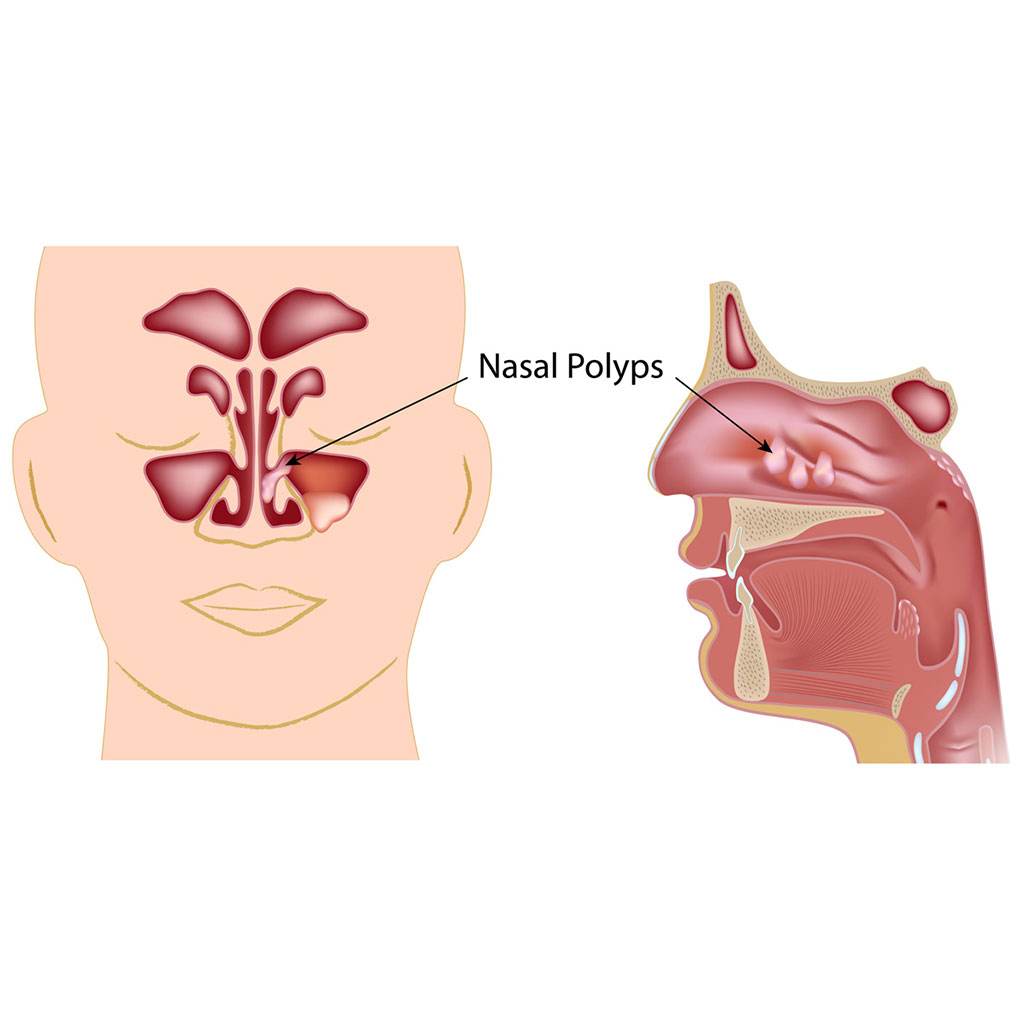
Nasal polyps


Overview
Nasal polyps are noncancerous lesions arising from the mucosa of the nose and sinus. Nasal polyps are more common in adults, although they can also occur at any age. They look like dangling teardrops which are soft but do not cause pain. Chronic inflammation causes nasal polyp to occur which is related to having recurring infection, allergies, asthma, immune disorders, or drug sensitivity.
Although no symptoms arise from nasal polyps but in large quantities, they may cause blocked nose or breathing difficulties, infections that keep recurring, and loss of sense of smell.
Treatments includes medication that can decrease size of the nasal polyp or remove it. However, surgery may be required. Nasal polyps can be eliminated, but there is also a tendency for them to recur.
Symptoms
Chronic irritation and inflammation of the nasal pathway and sinuses (chronic sinusitis) causes nasal polyps. Although nasal polyps can occur without having chronic sinusitis.
If the nasal polyps are small, they may be unnoticeable. However, large, or numerous nasal polyps can cause blockage of the nose and sinuses.
Nasal polyps and chronic sinusitis have these common signs and symptoms.
- Nasal congestion
- A runny nose or postnasal drip
- Loss of sense of smell
- Loss of sense of taste
- Headache or facial pain
- Upper teeth pain
- Frequent nosebleeds
- Snoring
If these symptoms last for more than 10 days, consult your doctor. There are many diseases which have symptoms that are almost the same with nasal polyps or chronic sinusitis.
Call for emergency medical assistance right away if you experience these symptoms:
- Severely swollen eyes
- Difficulty of breathing
- Sudden worsening of symptoms
- Double vision or limited eye movement.
- Intense headache with high fever or not being able to move your head forward.
Causes
The causes of nasal polyps are unclear. Nasal polyps are associated with long-term inflammation of the nasal passage and sinuses but not all cases are caused by nasal inflammation. There are some evidences that the people who develop nasal polyps tend to have a unique immune response and mucous membrane chemical markers based in the lining of the nose and sinus.
Nasal polyps commonly occur in young and middle-aged adults, although they can occur at any age. The most common areas where nasal polyps occur are in the sinuses near the nose, eyes and cheekbones. However, they may occur in any parts of the sinuses or nasal pathways.
Risk factors
The risk of having nasal polyps increase due to some triggers that causes irritation and inflammation of the sinuses and nasal passages (e.g., allergies and infections).
The following conditions are related to acquiring nasal polyps:
- Aspirin sensitivity
- Asthma. This condition constricts the airways.
- Allergic fungal sinusitis, airborne fungi allergy
- Cystic fibrosis. This is a genetic disease that causes the body fluids to become sticky which causes the nose and sinuses linings to secrete thick mucus.
- Churg-Strauss syndrome (eosinophilic granulomatosis with polyangiitis). This is a rare disorder which causes the blood vessels to become inflamed.
- Vitamin D deficiency.
Contact Information
service@vejthani.com






















